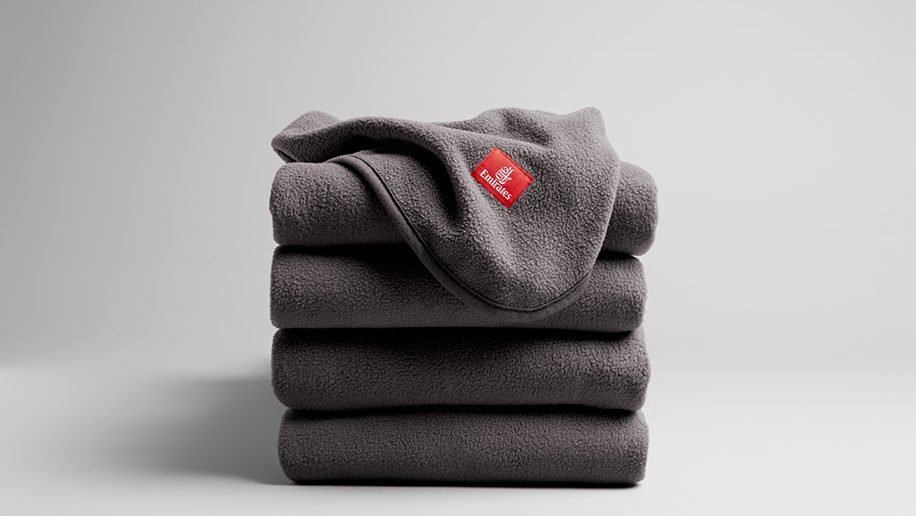
UAE carrier Emirates said that it recycled more than 500,000kg of plastic and glass last year – almost equivalent to the weight of one of its fully-loaded A380 aircraft.
The materials for recycling were gathered by collecting waste onboard its aircraft.
Its cabin crew separate glass and plastic bottles onboard, before sending it to a recycling plant in Dubai – thereby diverting thousands of kilograms of waste from landfills each year.
The glass is separated by colour and crushed. This ‘cullet’ or recycled glass that is ready to be re-melted, is then sent to glass manufacturers in the UAE to include in their batch mix for new bottles.
The plastic bottles meanwhile are cleaned, chopped into flakes, melted into pellets, and sent to manufacturers to make other plastic products.
For the last six years, Emirates has offered sustainable blankets made from recycled plastic bottles to economy class passengers on long-haul flights. Each blanket is made from 28 recycled plastic bottles. The bottles are shredded into plastic chips before being turned into yarn, creating a fleece material. The fine thread is then woven into blankets. Emirates blankets have, over the last six years, prevented more than 95 million plastic bottles from going to landfills. The airline added that the manufacturing process of using recycled polyethylene terephthalate (rPET) also reduces energy emissions by around 70 per cent.
Recycled plastic has other uses onboard Emirates’ aircraft too. The airline’s complimentary toy bags, baby amenity kits and toys are also made from recycled plastic bottles. Belt bags, duffle bags and backpacks are constructed from a yarn that is made from 100 per cent recycled plastic bottles. Each Emirates kids’ backpack is made from 5.5 recycled plastic bottles and each duffle bag is made from seven. The production of the Emirates children’s bags, the airline says, has saved eight million plastic bottles from landfills.
Air France launches amenity kits made from 93 per cent recycled material
Emirates’ Premium Economy and economy class range of complimentary amenity kits are also reusable and made from washable kraft paper with bespoke art printed in non-toxic soy-based ink. The contents of it are made from environmentally friendly materials – the toothbrush is made from a combination of wheat straw and plastic, and the socks and eyeshades are made from recycled plastic (rPET). Furthermore, the packaging used for the dental kit, socks and eyeshades is made from 90 per cent rice paper.
Emirates added that the wooden tea and coffee stirrers, paper straws and its inflight retail bags are also made using wood and paper from responsibly managed forests.
In a significant step forward for the carrier’s sustainability initiatives, Emirates recently conducted a test flight with 100 per cent Sustainable Aviation Fuel (SAF) in one engine of its B777-300ER aircraft. It became the first flight in the Middle East and North Africa to be powered by 100 per cent SAF. The test flight is part of the progress to support future certification where 100 per cent drop-in SAF is approved for aircraft – currently, SAF is approved only in blends of up to 50 per cent with conventional jet fuel.












